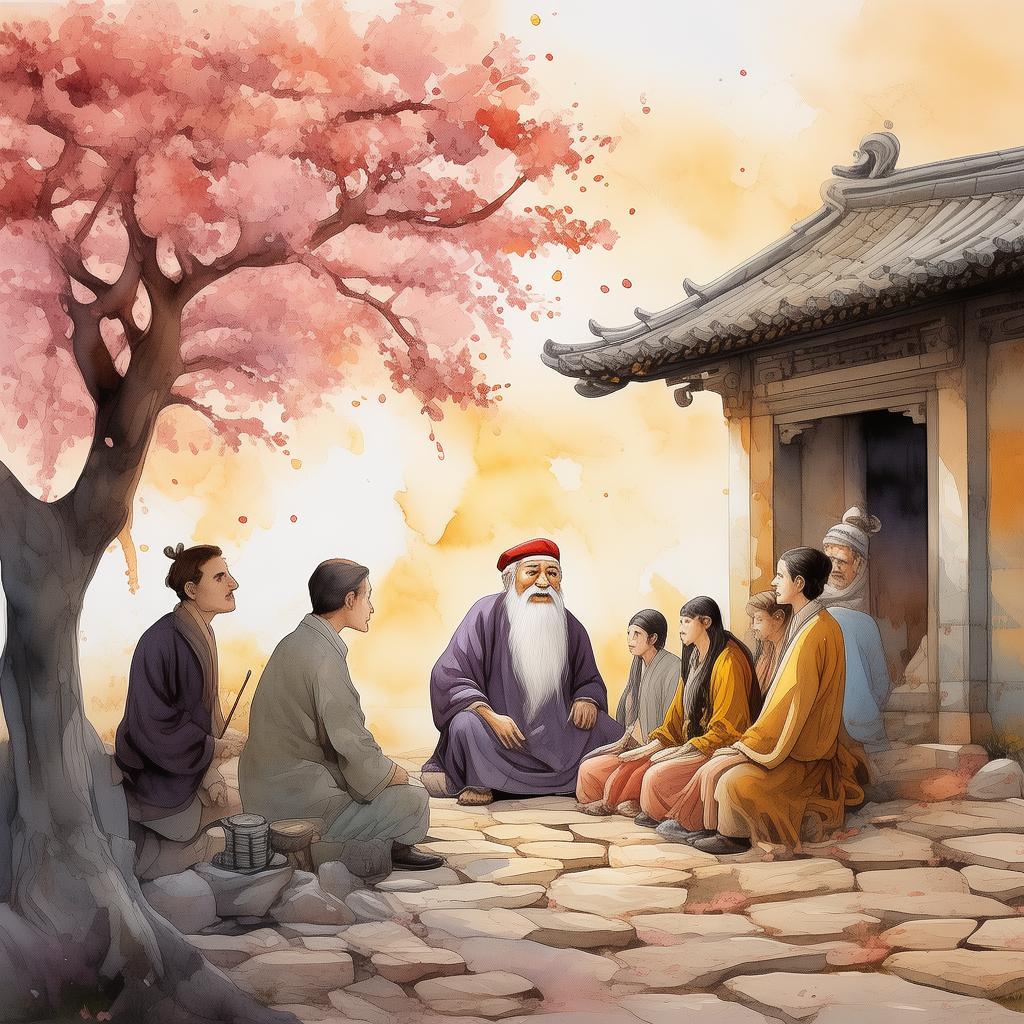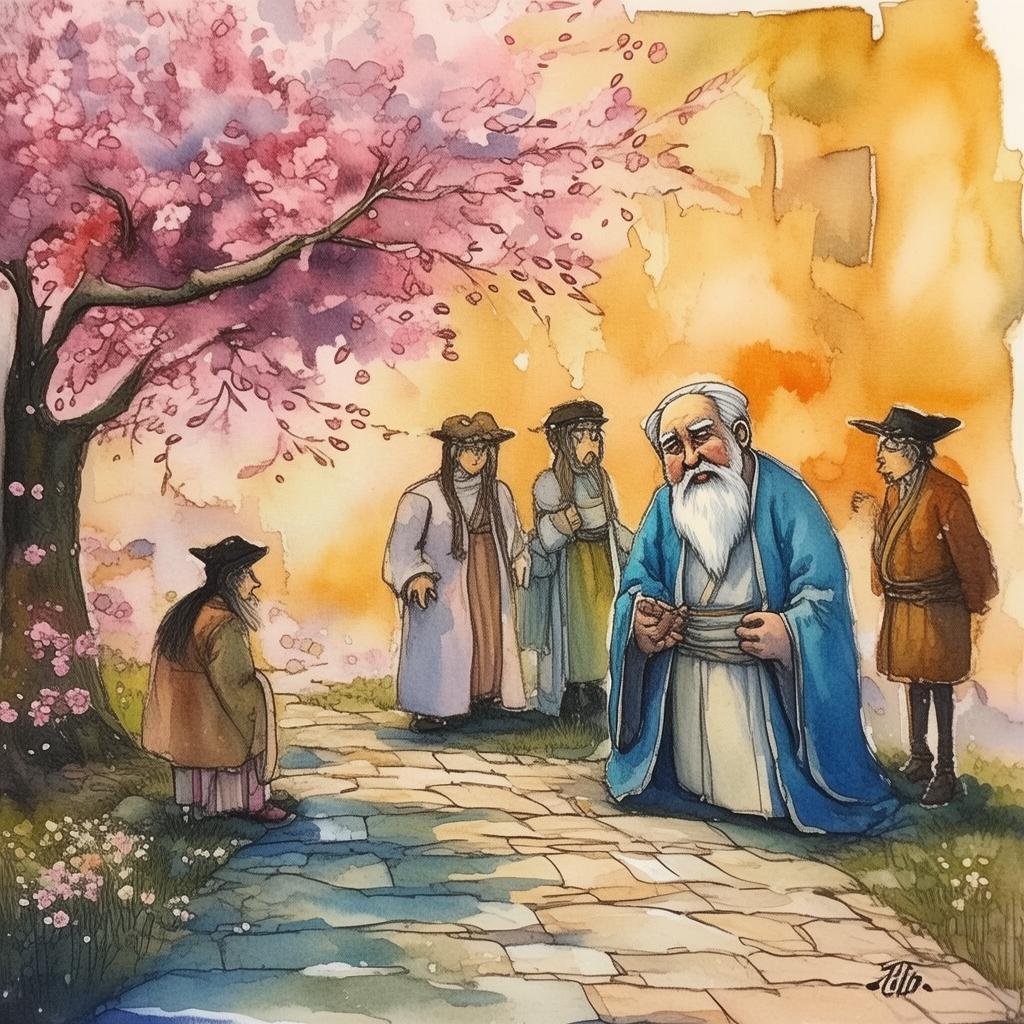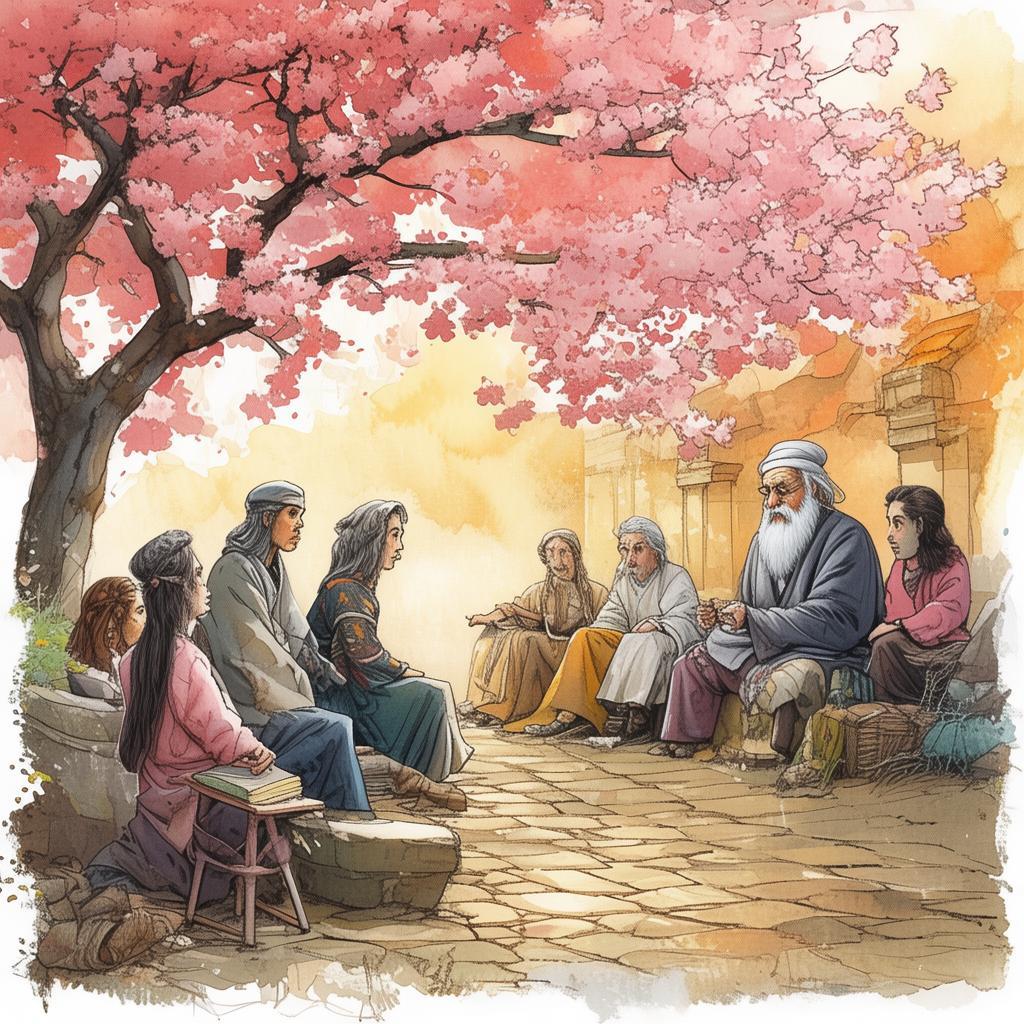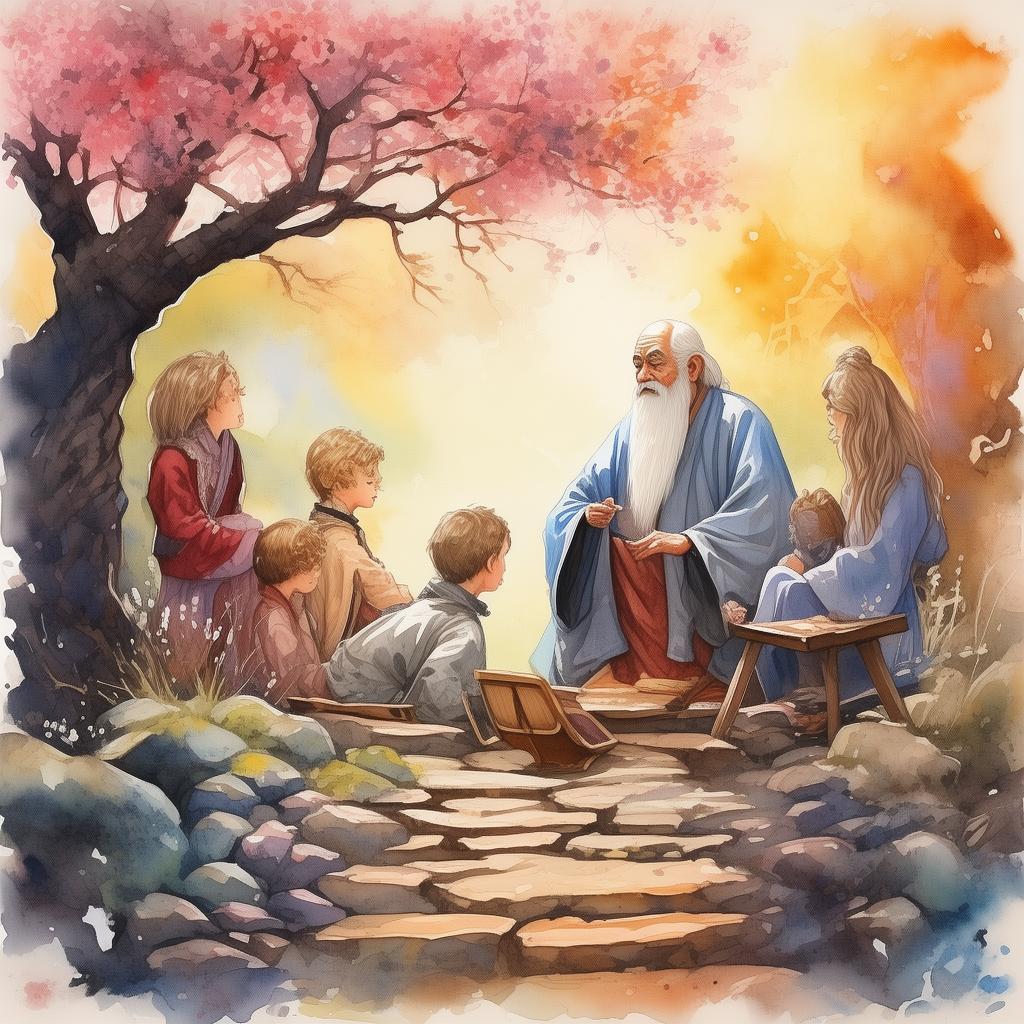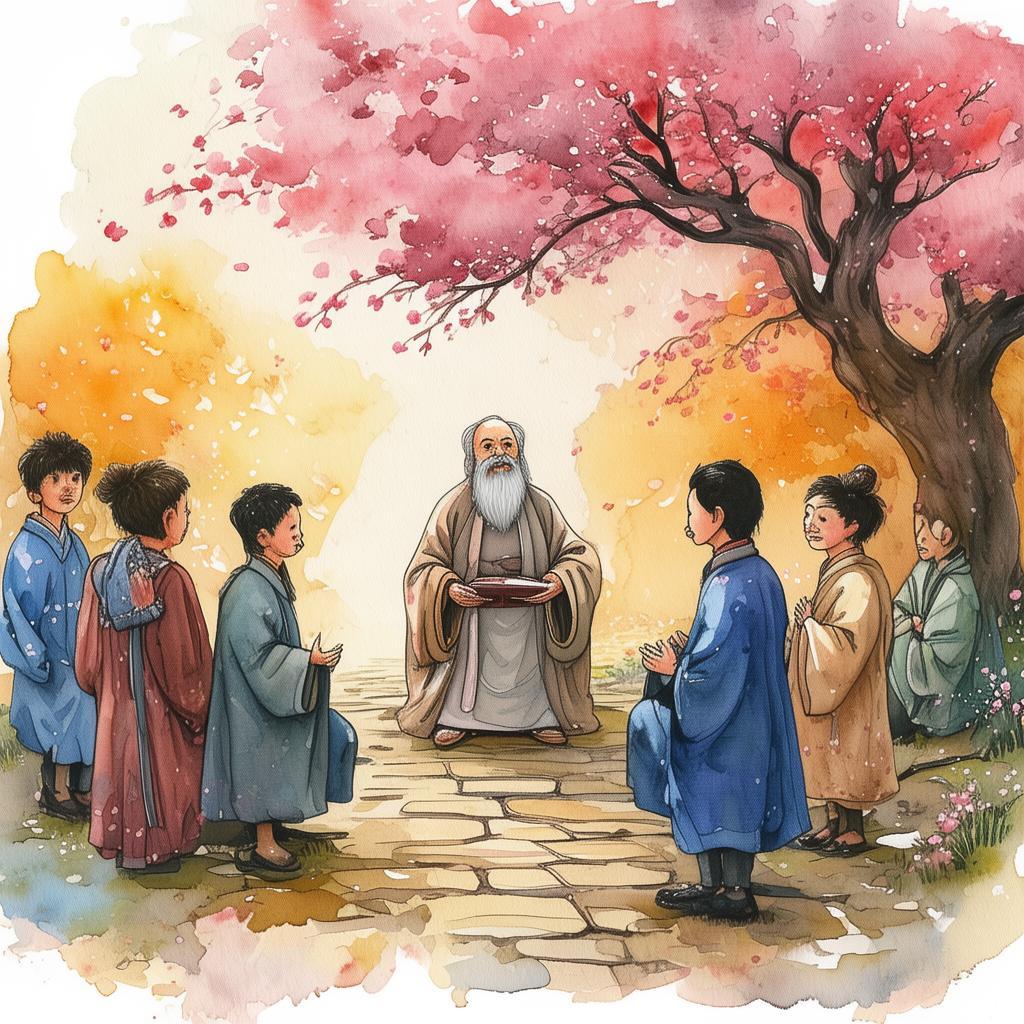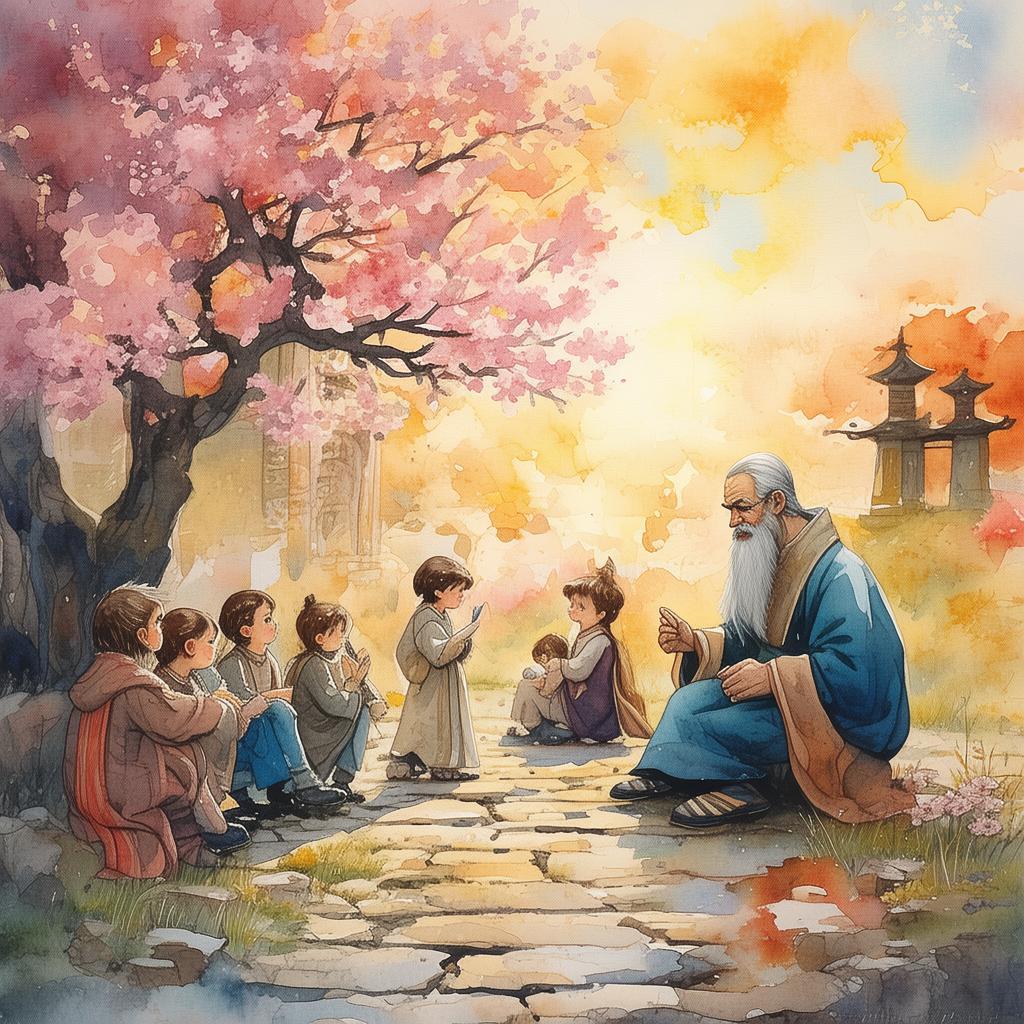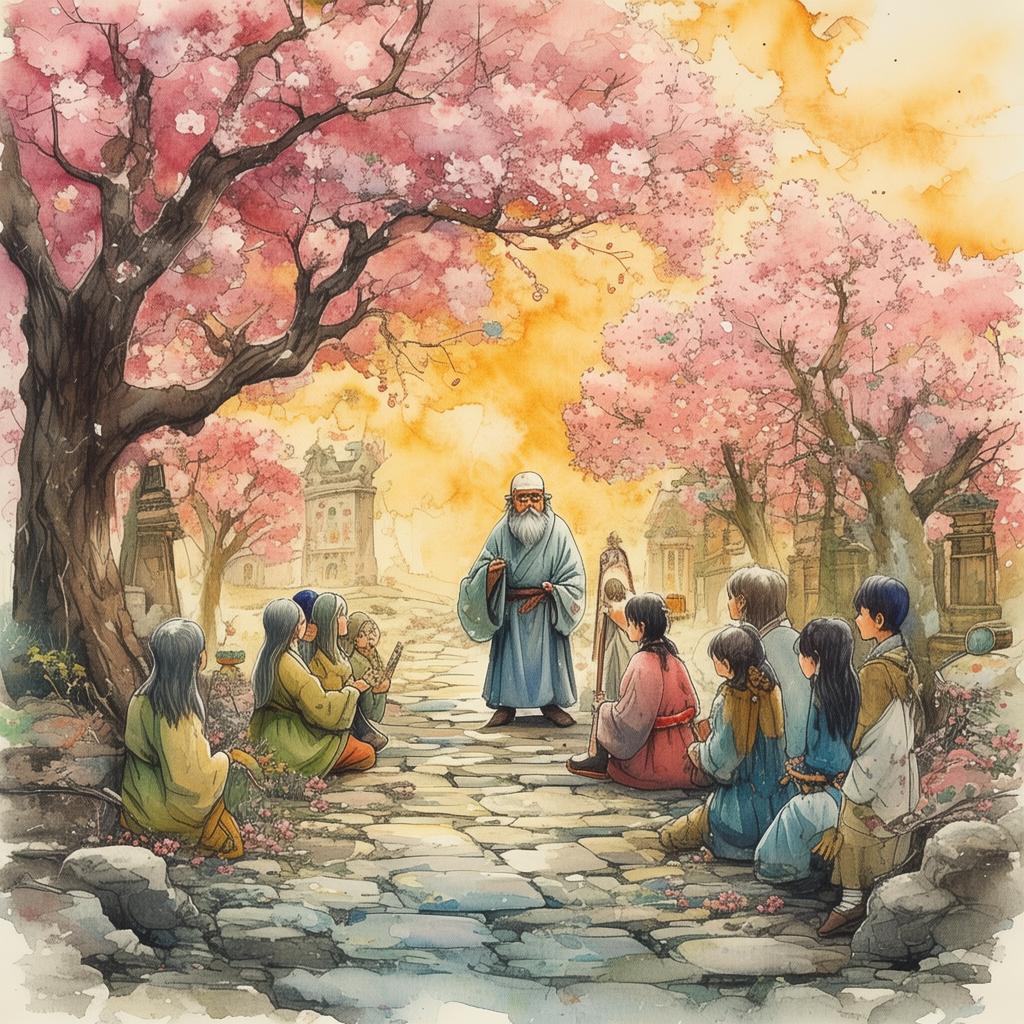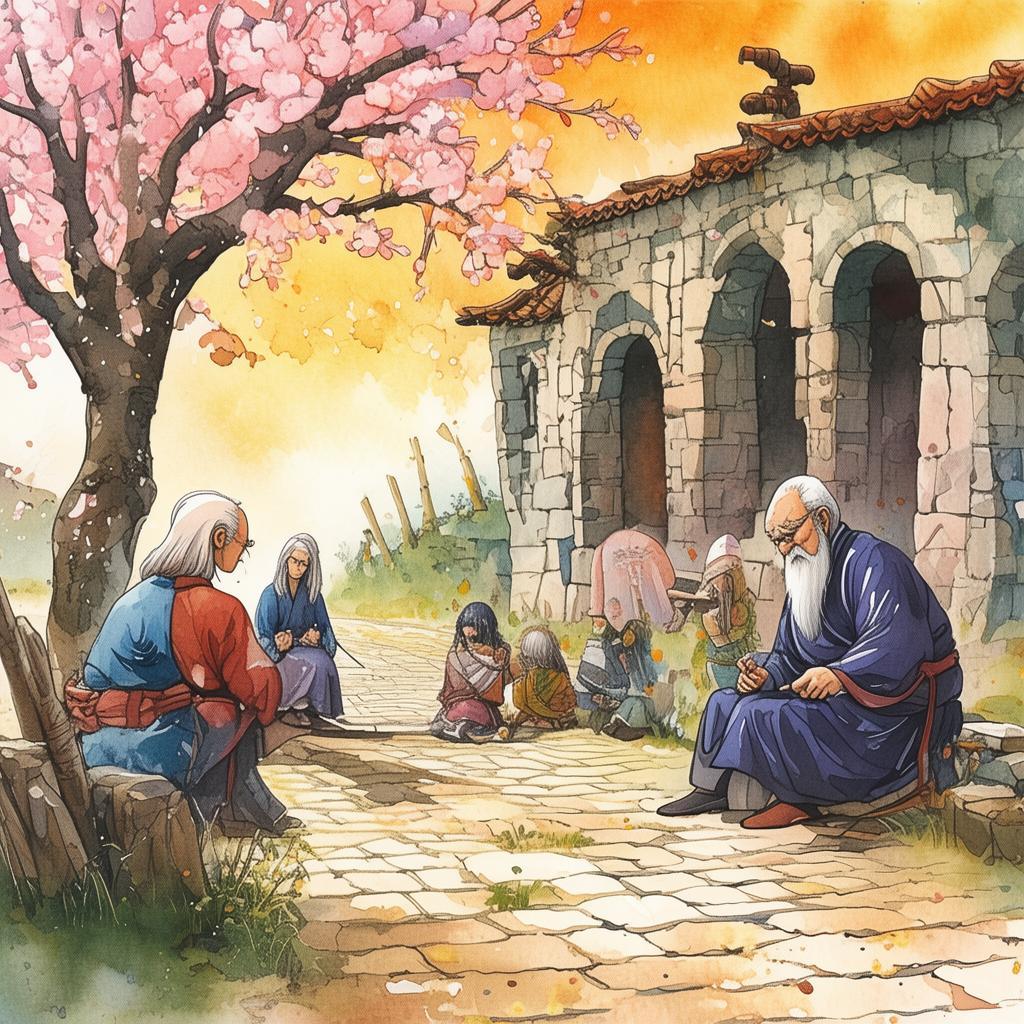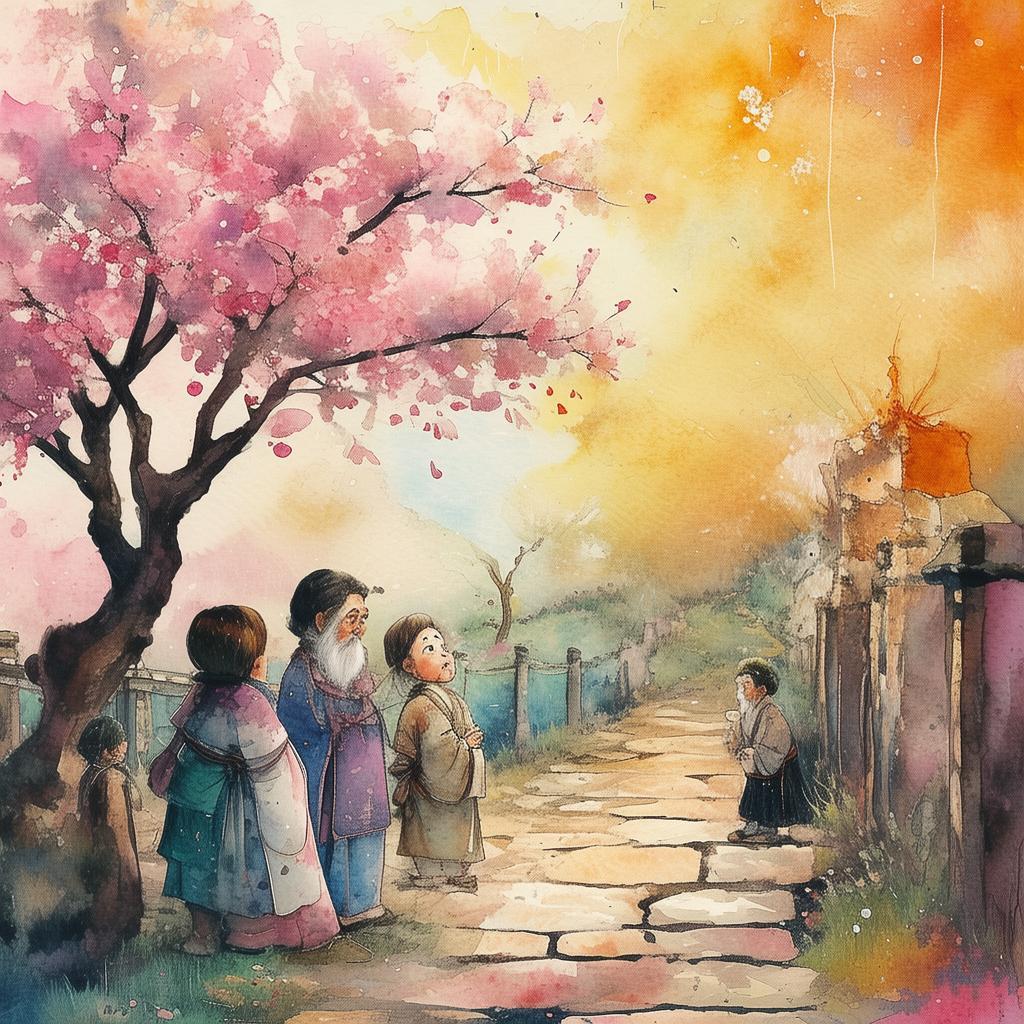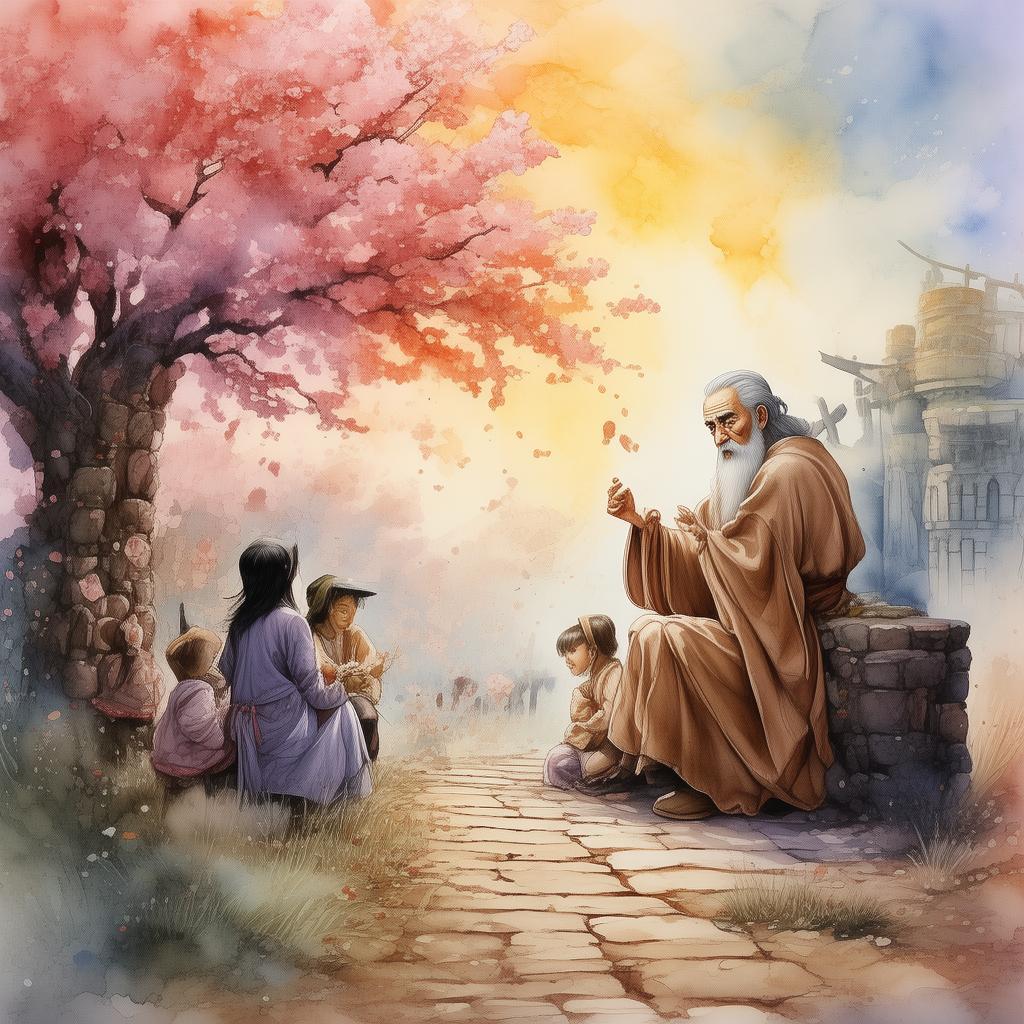The Enigma of the Bamboo Forest: A Quest for the Cultural Compass
In the heart of ancient China, there lay a verdant bamboo forest known to the locals as the "Enigma of the Bamboo." Whispers of the Cultural Compass, a mystical artifact said to hold the essence of all cultural wisdom, echoed through the ages. It was a legend that had been passed down through generations, a beacon to scholars and sages who sought to uncover the secrets of the world.
Amidst the towering bamboo stalks, where the sun's rays struggled to penetrate the dense canopy, lived a young scholar named Wen. Wen was a man of deep intellect and a passion for the arts and humanities. He had heard tales of the Cultural Compass since childhood, and it was this dream that had driven him to become the scholar he was today.
One fateful morning, as the bamboo leaves swayed gently in the breeze, Wen set out on his quest. He carried a map, a gift from his mentor, and a heart brimming with hope and fear. The map, adorned with cryptic symbols and delicate illustrations, was the only clue he had to the Compass's location.
Wen's journey began at the entrance of the forest, where the path was narrow and winding, like the thoughts in a mind lost in contemplation. As he ventured deeper, the bamboo grew taller and denser, and the air grew cooler. Wen could feel the forest's ancient energy around him, a sense of timelessness and mystery.
After several days of walking, Wen encountered his first challenge. Before him stood a towering bamboo stalk, its branches intertwined like the threads of fate. Wen tried to push through, but the stalks seemed to grow stronger, trapping him in a web of destiny. Desperate, he called out to the spirits of the forest, imploring them to reveal the path forward.
To his astonishment, a voice resonated through the bamboo, a voice that seemed to come from everywhere and nowhere. "The true path lies not in the material world, but in the heart," the voice declared. Wen realized that the bamboo was a metaphor for the complexity of the human mind, and the path he sought was one of self-discovery.
Determined, Wen pressed on, now seeking not just the Cultural Compass, but the wisdom to navigate the labyrinthine garden of his own thoughts. He encountered trials that tested his knowledge of history, poetry, and philosophy. Each challenge forced him to confront his own biases and assumptions, to question everything he thought he knew.
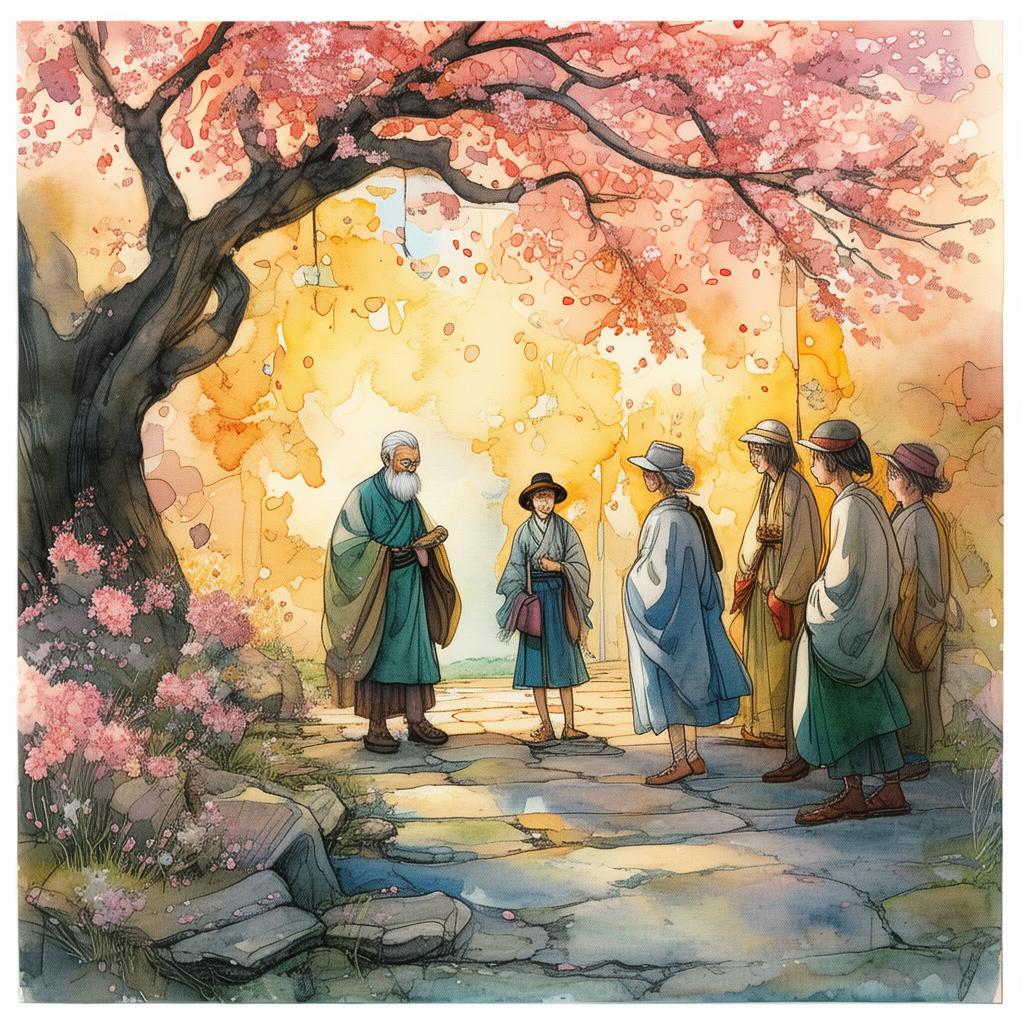
One day, Wen stumbled upon an ancient stone tablet inscribed with the words: "The Cultural Compass is not an object, but an idea. It resides in the heart of those who seek it, guiding them toward the light of truth." This revelation filled Wen with a newfound sense of purpose, and he understood that the true quest was not for the Compass itself, but for the understanding of its essence.
As Wen continued his journey, the bamboo forest seemed to change around him. The path became clearer, the challenges less daunting. Wen felt the weight of his own knowledge lightening, as he embraced the idea that true wisdom was not confined to books or artifacts, but was an ever-evolving process of self-reflection and growth.
Finally, Wen arrived at the heart of the forest, where the bamboo grew shortest and the air was charged with an otherworldly energy. Here, in a clearing bathed in ethereal light, Wen found a stone pedestal. Upon it rested not a material object, but a simple, unadorned compass. This was the Cultural Compass, the symbol of his journey's end and the beginning of a new understanding.
Wen took the compass in his hands and felt its weight. It was not cold or heavy, but warm and alive, a reminder that knowledge and wisdom are not to be possessed, but to be shared and applied. With a newfound sense of clarity, Wen turned back towards the outside world, ready to share the wisdom he had found within the bamboo forest.
The Enigma of the Bamboo Forest had not only given Wen the Cultural Compass, but had also taught him the true meaning of cultural heritage. It was not a static collection of artifacts and traditions, but a living, breathing entity that was shaped by the thoughts, actions, and reflections of every person who sought to understand it. Wen returned to the world outside the forest, a changed man, his heart full of the light of truth that had been revealed to him in the labyrinthine garden.
✨ Original Statement ✨
All articles published on this website (including but not limited to text, images, videos, and other content) are original or authorized for reposting and are protected by relevant laws. Without the explicit written permission of this website, no individual or organization may copy, modify, repost, or use the content for commercial purposes.
If you need to quote or cooperate, please contact this site for authorization. We reserve the right to pursue legal responsibility for any unauthorized use.
Hereby declared.
